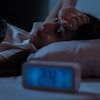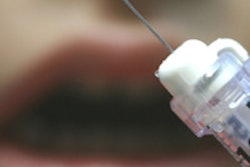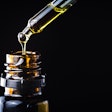Combining mannitol with lidocaine significantly increases the effectiveness of an inferior alveolar nerve block, according to a new study in Anesthesia Progress (Spring 2013, Vol. 60:1, pp. 3-10).
A team of researchers from Ohio State University tested the efficacy of lidocaine with epinephrine compared with equal amounts of lidocaine with epinephrine plus mannitol. After injecting the anesthetic, the subjects' teeth were electric pulp-tested for sensation. The researchers also measured pain of solution deposition and postoperative pain.
The same 40 patients were given both drug combinations in two separate appointments at least one week apart. To blind the experiment, random five-digit numbers were assigned to each anesthetic formulation, so neither the patients nor the personnel administering the anesthetic knew which formulation was being given.
An electric pulp tester was used to test the sensitivity of the patients' teeth. A drop of toothpaste acts as a conductor of the electric current to the tooth. After the injection of the nerve block, different teeth were tested once a minute in a repeating pattern for a total of 60 minutes. The patients also rated their experiences of lip numbness and postoperative pain on a scale of 0 to 3.
No significant differences were found between the two treatments for pain of solution deposition and postoperative pain. However, the mannitol treatment was shown to be more effective for all teeth, offering a greater level of pain relief for dental patients, the researchers concluded.



















